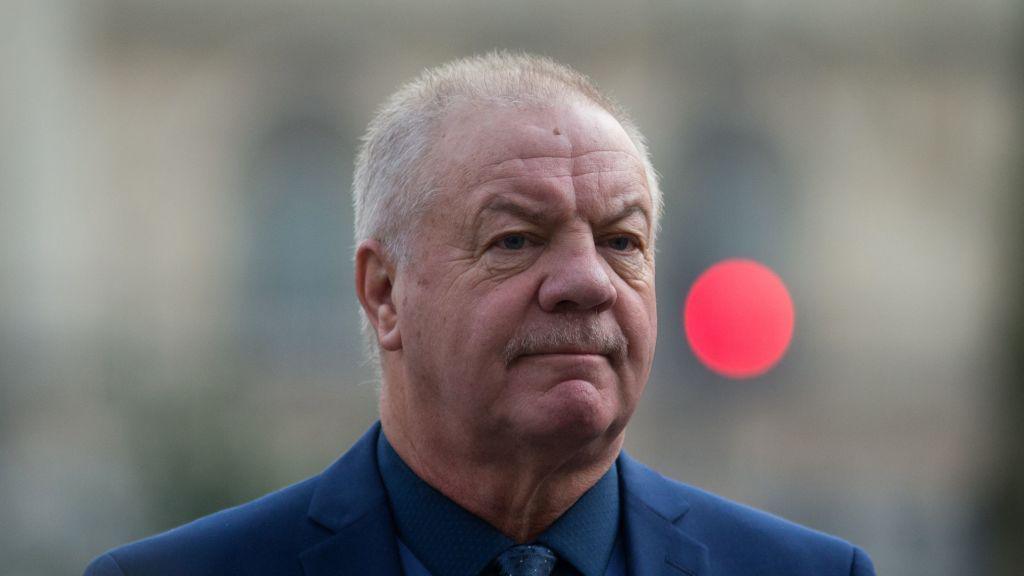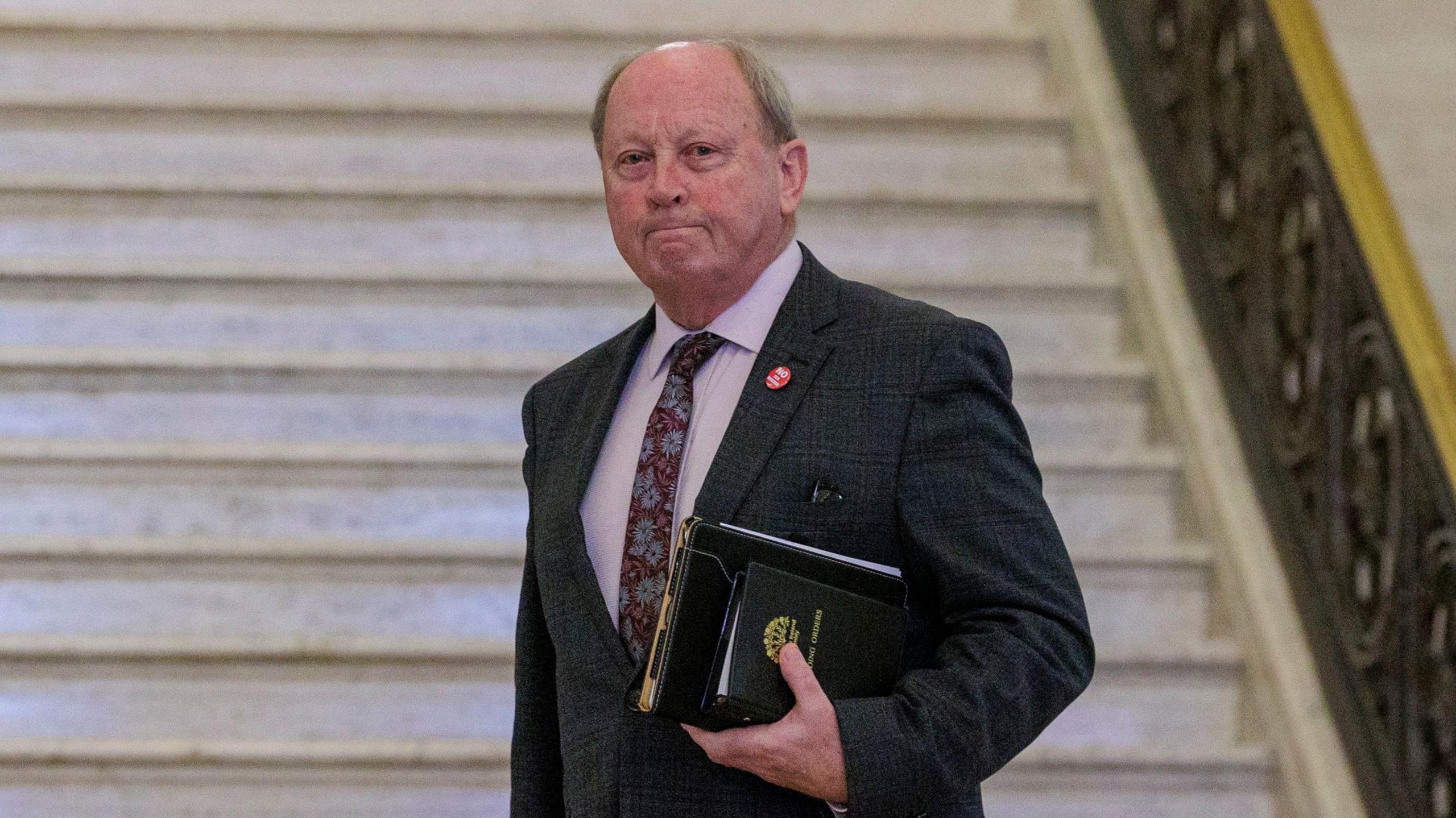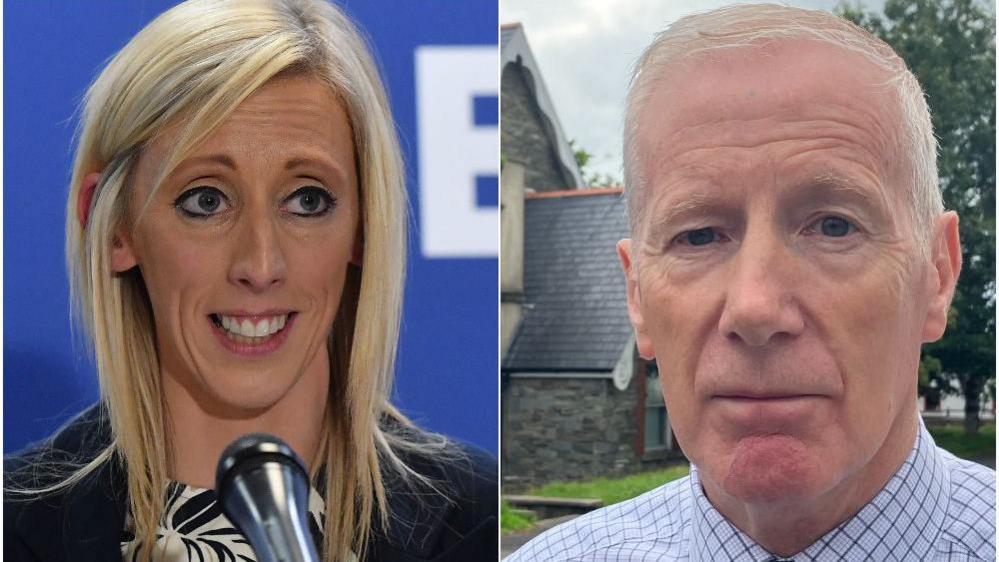MPs entitled to information on McCord legal funding

Raymond McCord has challenged the Legal Services Agency in response
- Published
Three unionist MPs are entitled to the disclosure of legal aid funding for cases taken by victims' campaigner Raymond McCord, a High Court judge has ruled.
A judge held that a decision to release the information requested by Jim Allister, Gregory Campbell and Carla Lockhart was lawful, fair and transparent.
Mr McCord challenged the Legal Services Agency (LSA) for agreeing to release details about the level of funding he has received.
The decision in February 2020 followed Freedom of Information (FOI) requests from TUV Leader Mr Allister and senior DUP representatives Mr Campbell and Ms Lockhart.

Jim Allister was one of three MPs to access this information
Mr McCord claimed publication would unlawfully breach his personal data.
Therefore nothing was disclosed pending the outcome of the judicial review.
Mr McCord has been a campaigner since his 22-year-old son, Raymond junior, was murdered by the UVF in Belfast in 1997.
No one has ever been convicted of his murder.
He has taken a number of actions, including cases on Brexit opposition and on the criteria for calling a border poll on Irish unification.
His lawyers claimed pro-Brexit representatives were seeking information on the legal aid funding which, if disclosed, would be used to score political points and publicly attack his character.
The court heard Mr Allister made the most extensive FOI requests, in which he described Mr McCord as a “serial litigator”.
Mr Campbell and Ms Lockhart also asked for details on legal aid granted for cases relating to the government’s Brexit strategy.
'Legitimate public interest'
At one stage the decision to release details on funding for public law litigation was referred to the Information Commissioner’s Office (ICO).
The ICO provided an opinion that disclosure would likely be unfair and unlawful, but stressed its view was in no way legally binding.
As he ruled on the challenge, the judge said it was significant that the information requests came from elected representatives.
“There is a legitimate public interest in the openness and accountability of the LSA as a public authority responsible for the expenditure of substantial public funds,” he held.
“His contention that he is a private individual sits uneasily with his own description as a ‘peace campaigner’ and his various interviews with the media, including when he challenged the public claims made by Mr Allister about the appropriateness of him being granted legal aid,” he said.
“Self-evidently, the applicant has injected himself into the public discourse on a number of high-profile cases which are of obvious and manifest interest to the public. This is particularly so in relation to Brexit litigation.”
No funding disclosed

Carla Lockhart and Gregory Campbell also asked for details on legal aid granted for cases relating to the government’s Brexit strategy
Dismissing Mr McCord’s judicial review challenge, the judge said that release of the proposed data would ensure transparency in how public money is paid out.
“The request by Mr Allister and others is made in the context of his view on the appropriateness of an individual bringing cases in relation to important public law issues with the assistance of legal aid and the fact that other, in his view, more meritorious cases, do not receive legal aid,” he said.
“This is within the realm of legitimate public comment by an elected representative who is seeking to highlight what he considers the inappropriate use of the legal aid fund to support litigation.”
Funding information will remain disclosed at this stage.
The LSA gave an undertaking not to release any details during a six-week period available to Mr McCord to mount an appeal.